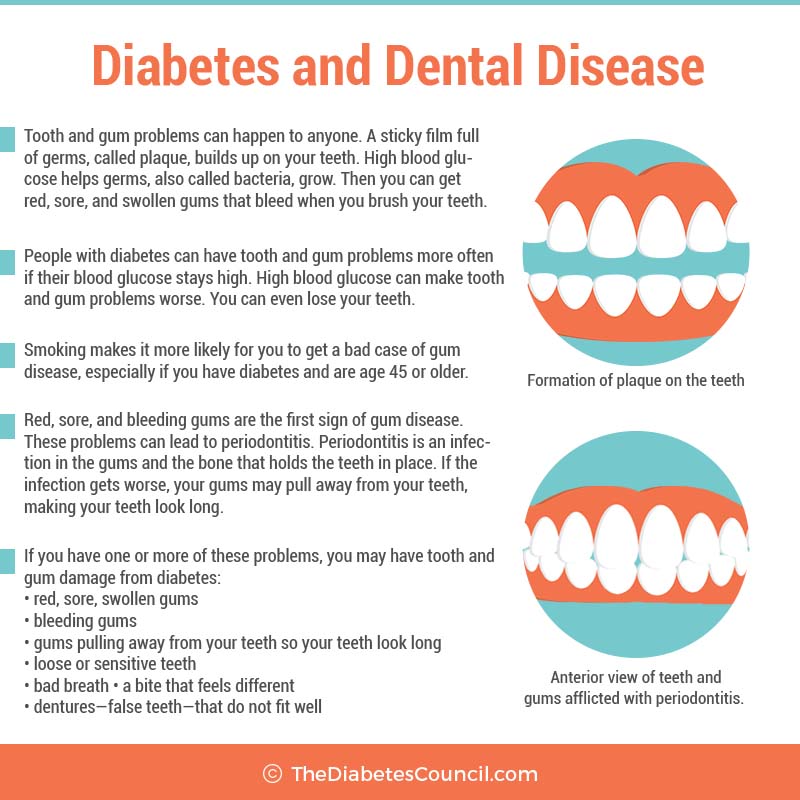Diabetes and Oral Health
Diabetes and Oral Health, Common Dental Issues and Prevention Strategies

Living with diabetes requires comprehensive care, and oral health is no exception. In this blog post, we delve into the intricate relationship between diabetes and dental problems, shedding light on common issues and offering valuable insights for a healthier smile.
Gum Disease and Diabetes:
Explore how diabetes contributes to gum inflammation and what proactive steps can be taken to maintain optimal gum health.
Dry Mouth Woes: The Diabetic Connection:
Discover the impact of diabetes on saliva production and the resulting dry mouth challenges. Uncover practical tips to alleviate dry mouth symptoms and reduce the risk of cavities and oral infections.
Cavity Conundrum: Navigating the Sugar Storm:
High blood sugar levels create a breeding ground for harmful bacteria, increasing the likelihood of cavities. Dive into the connection between diabetes and dental caries, and learn effective strategies to fend off tooth decay.
Healing Hurdles: Diabetes and Oral Surgery:
For diabetic individuals, the road to recovery after dental procedures can be a bit bumpy. Understand the challenges of delayed wound healing and explore ways to enhance the healing process for better post-operative outcomes.
Fungal Foes: Diabetes and Oral Thrush:
Gain insights into preventing and managing these infections, ensuring a healthier oral environment.
Taste Disturbances: Unraveling the Diabetic Impact:
Explore the lesser-known aspect of diabetes affecting taste perception.
Proactive Measures for Diabetic Oral Health:
- Blood Sugar Mastery: Dive into the significance of maintaining stable blood sugar levels and its direct impact on oral health.
- Oral Hygiene Excellence: Unveil the secrets of effective oral hygiene routines tailored for diabetic individuals, including brushing, flossing, and mouthwash use.
- Regular Dental Check-ups: The role of consistent dental check-ups in preventing and addressing oral issues cannot be overstated. Discover why regular visits to the dentist are a cornerstone of oral health for those with diabetes.
Conclusion:
By understanding the interplay between diabetes and dental problems, one can adopt targeted strategies to maintain a vibrant and healthy smile. Stay informed, stay proactive, and embrace a comprehensive approach to diabetes care that includes optimal oral health practices.
Dental implants are a permanent solution for missing teeth. Restore your smile with Dental implants. They are made of titanium, which is a strong and biocompatible material that integrates with the jawbone. This allows the implant to act as a natural tooth root, providing support for a crown, bridge, or denture.
Dental implants can help you to:
- Improve your chewing ability
- Protect your jawbone from deterioration
- Speak clearly
- Restore your smile and confidence.
If you are missing one or more teeth, dental implants may be a good option for you. Talk to your dentist about whether implants are right for you.
Here are some of the benefits of dental implants:
- Dental implants are a great option for people who are missing one or more teeth. Dental Implants are made of titanium, which is a strong and biocompatible material that fuses with the jawbone. This allows the implants to provide a stable foundation for replacement teeth, which can look and feel just like natural teeth.
- Dental implants are also very durable. They can last for many years with proper care. In fact, some studies have shown that dental implants can last even longer than natural teeth.
- In addition to their aesthetic and functional benefits, dental implants can also help to improve your overall oral health. By providing a stable foundation for replacement teeth, implants can help to prevent bone loss and gum disease. This is because bone loss and gum disease are often caused by the movement of teeth, which can put stress on the jawbone.
- Finally, dental implants can also help to restore your confidence and self-esteem. Missing teeth can make you feel self-conscious and can make it difficult to eat and speak properly. Dental implants can help to improve your appearance and your ability to function normally, which can lead to a significant improvement in your quality of life.

If you are considering dental implants, there are a few things you should keep in mind:
- The cost of dental implants can be high, but there are often financing options available.
- The surgery to place dental implants is more involved than other tooth replacement options, but it is usually done under local anesthesia and is generally well-tolerated.
- It takes time for the implants to integrate with the jawbone, so you will need to wear a temporary restoration until the implants are healed.
Overall, dental implants are a safe and effective way to replace missing teeth. If you are looking for a long-lasting, natural-looking tooth replacement option, Dental Implants may be the right choice for you.
Here are some additional things to consider when choosing a dental implant dentist:
- Make sure the dentist is a member of a reputable dental association.
- Ask about the dentist’s experience with dental implants.
- Get a written estimate of the cost of the dental implant procedure.
- Ask about the dentist’s financing options.
- Make sure the dentist is comfortable answering your questions about dental implants.
Here describe the visible braces vs invisible braces.
Visible braces
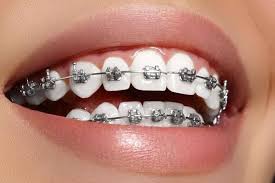
Visible braces can be an effective option for people with complex orthodontic issues or those who want to achieve quick and efficient results.
One of the advantages of visible dental braces is their versatility. Visible braces can also produce reliable results and are often more affordable than other types of braces.
However, one of the drawbacks of visible dental braces is their appearance. This may cause some people to feel self-conscious or embarrassed about their appearance, particularly during the early stages of treatment.
Additionally, visible braces may require more frequent visits to the orthodontist for adjustments, and they may cause discomfort or irritation in the mouth.
Overall, visible dental braces can be an effective and affordable option for straightening teeth and improving bite alignment.
Benefits of Metal Braces
- Versatility: A wide range of orthodontic issues, including crooked teeth, overbites, underbites, crossbites, and gaps between teeth, can be corrected by visible braces.
- Reliability: Visible braces are a tried-and-tested orthodontic treatment and can produce reliable results for many patients.
- Affordability: Visible braces are often more affordable than other types of braces, making them a good option for patients on a budget.
- Effective: Visible braces can often achieve results more quickly than other orthodontic treatments, particularly in cases of severe or complex orthodontic issues.
- Customizable: Brackets and wires are available in different shapes and sizes for each patient their unique fit.
- Controlled: This allows for precise control over the movement of teeth.
- Preventative: Visible braces can help prevent future dental issues by improving bite alignment and reducing the risk of tooth decay and gum disease.
Invisible braces
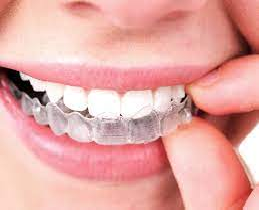
the orthodontic treatment has one more option a Clear aligner, and visible and invisible braces.
Invisible braces are a more discreet option. They consist of clear aligners that are custom-made to fit over the teeth.
It’s important to note that both types of braces require regular maintenance and checkups with an orthodontist. Consulting with an orthodontist can help individuals make an informed decision about which type of braces is right for them.
Invisible braces, also known as clear aligners, are a popular alternative to traditional metal braces. They offer several benefits that make them a popular choice for many people looking to straighten their teeth.
Benefits of clear aligners:
- Aesthetics: Clear aligners are nearly invisible, so they won’t detract from your appearance. Such as adults or teens who may feel self-conscious about wearing metal braces.
- Comfort: This makes it easier to brush and floss your teeth, and also to eat your favorite foods.
- Customization: Clear aligners are custom-made to fit your teeth, so they are much more comfortable than traditional metal braces. They also allow for a more precise fit, which can lead to better results.
- Speed: In many cases, clear aligners can provide results more quickly than traditional metal braces. The average treatment time is about 12-18 months, although this can vary depending on the individual case.
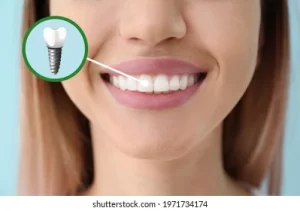
The cost of dental implants in India varies based on implant type, procedure complexity, and dentist expertise. Prices range from INR 30,000 to over INR 1,50,000. While more expensive than other options, dental implants offer long-term benefits. Choose an experienced dentist and compare multiple providers to make an informed decision. Overall, dental implants are a valuable investment for your oral health and quality of life.
Affordable Costs of Dental Implants in India:
Affordable Costs are attracting patients from all over the world. Compared to western countries, the cost of dental implants in India is significantly lower, making it an excellent choice for those seeking budget-friendly dental care. However, this does not compromise the quality of services offered.
To ensure high-quality care and desired results, select a qualified and experienced dental professional while evaluating dental implant costs. Enquire about the dentist’s training, experience, and success rate, and compare prices and services from various providers before making an informed decision.
The cost of dental implants in India can vary depending on the type of implant, the number of implants, and the complexity of the surgery, but it is an investment in your long-term oral health that can deliver significant benefits and improve your quality of life.
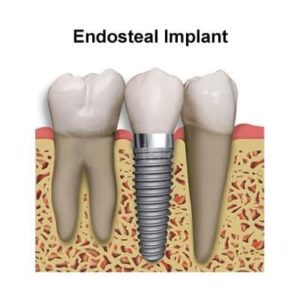
Dental implants have revolutionized the field of dentistry and have become a popular option for teeth replacement. They are long-lasting and provide a natural look and feel. India has emerged as a popular destination for dental implant treatments due to its affordable costs and high-quality services.
Full mouth dental implants in India are a popular option for patients who have lost most or all of their teeth. These implants provide a natural look and feel, and patients can enjoy their favorite foods and smile confidently. The procedure involves placing several dental implants in the jawbone and attaching a fixed or removable prosthesis.
Teeth replacement in India is no longer a complicated process. With the availability of affordable dental implants, advanced implant dentistry treatments, and skilled dental implant specialists, patients can achieve a perfect smile and optimal oral health. Whether you need a single-tooth implant or full mouth dental implant, India has got you covered.
Cavity free children
test
Missing tooth replaced within an hour by our team. There are three possible options for replacing a tooth which are to use a removable denture, to have a fixed dental bridge, or a long-lasting dental implant.
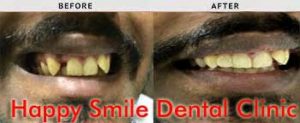
Apply direct pressure to the extracted site, by firmly biting on a folded cotton. Remove the cotton after 45 minutes.
Apply ice packs to your face on the side of the extraction to control swelling.
Consume soft diet for the next 3 days.
Sugars are one among the prime causative factors for dental cavities and general health problems like diabetes mellitus and cardiovascular diseases. Diet modification plays a vital role in preventive care.

- Decrease the amount of total carbohydrates so that they provide not more than 50% and not less than 30% of calories.
- Increase the intake of protective foods such as vegetables, fruits, milk, cheese and meat which are rich in vitamins, minerals and proteins.
- Restrict the consumption of sugar containing foods to meals.
- Eliminate sticky foods, sweets, candies, cakes and pastries especially between meals.
- Minimize sugar intake if complete elimination is impractical.
- Use tooth cleansing foods such as raw fruits and vegetables to maximize the oral clearance of food debris and stimulate the salivary flow rate.




